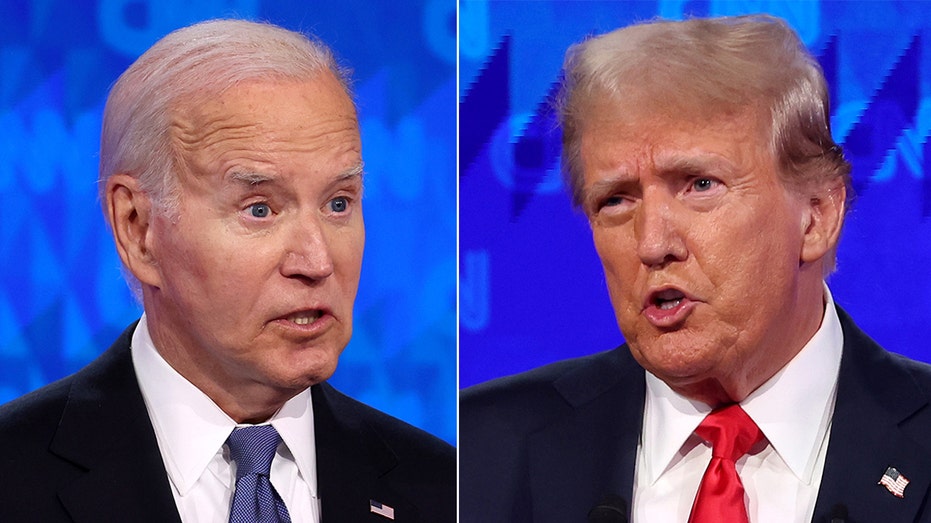Musk’s Department of Government Efficiency Should Eliminate Itself
Elon Musk appears poised to play a major role in the next Trump administration. The billionaire owner of Tesla, SpaceX, and Twitter formally endorsed President-elect Donald Trump in July and funneled millions of dollars into super PACs to support his reelection bid during the campaign. Trump, in turn, has seemingly rewarded him with unprecedented access and support.Musk, who is constitutionally barred from running for president, is now poised to act as a shadow president of sorts, shaping government policy while Trump focuses on his many grievances. Foremost among Musk’s priorities is something called DOGE, which stands for the Department of Government Efficiency. The name is a reference to an internet meme involving a Shiba Inu dog that is popular in certain internet and cryptocurrency circles and frequently referenced by Musk himself.DOGE’s actual goals are far less cutesy. Musk campaigned on the idea that he would use DOGE to personally enact sweeping structural changes to the executive branch through budget cuts, civil service purges, and more. Trump gave this project his blessing last week by naming Musk and Vivek Ramaswamy, a right-wing businessman who ran in the 2024 GOP presidential primary earlier this year, to lead it.“Together, these two wonderful Americans will pave the way for my Administration to dismantle Government Bureaucracy, slash excess regulations, cut wasteful expenditures, and restructure Federal Agencies—Essential to the ‘Save America’ Movement,” Trump wrote on social media. “I look forward to Elon and Vivek making changes to the Federal Bureaucracy with an eye on efficiency and, at the same time, making life better for all Americans.”There is one major problem for DOGE, however: It appears to be detached from reality. Much of what the group hopes to achieve would be impossible, impractical, illegal, or some combination thereof. It does not appear to be a serious attempt at overhauling the federal government, and it will most likely serve as a burden on and a distraction from more serious right-wing ambitions.Trump, Musk, and Ramaswamy have each framed DOGE as some kind of outside consultancy that will be able to make sweeping budget cuts and massive organizational changes to what they describe as a bloated, unwieldy federal bureaucracy. Musk has shared memes on Twitter comparing himself and his allies to the consultants who downsize the company in the 1999 comedy film Office Space, famously by asking, “What exactly would you say you do here?”The implication is that Musk will personally transform the federal government into a leaner, meaner machine that will save trillions in taxpayer dollars. Musk and his allies have alluded to his tenure as owner of Twitter, where he fired most of its staff and slashed costs to make it profitable, and suggested that he could replicate those efforts within the federal government.The two men who will co-lead DOGE—which hardly sounds efficient to begin with—have not tried to downplay expectations for what they will accomplish. “We expect certain agencies to be deleted outright,” Ramaswamy said in a recent Fox News interview. “We expect mass reduction in force in areas of the federal government that are bloated. We expect massive cuts among federal contractors and others who are overbilling the federal government.”Things will not be that simple. For one thing, DOGE is built on a mistaken perception of federal finances. Musk has publicly suggested that the group could save $2 trillion in federal spending by eliminating “waste” in government. The Washington Post noted last month that the federal government is expected to spend roughly $6.7 trillion in the 2024 fiscal year, and that most of that spending is on Social Security, Medicare, national defense, and interest on the national debt. Targeting those expenditures will likely provoke a massive political backlash and, in the case of the debt, would be unconstitutional.DOGE also cannot readily target discretionary spending—the kind of spending allocated each year by Congress instead of through permanent statutory mechanisms—because what Musk and Ramaswamy describe would essentially wipe out the entire federal government as we know it. Right-wing think tanks have often discussed shuttering disfavored agencies like the Department of Education or the Environmental Protection Agency. But achieving $2 trillion in annual cuts through discretionary spending would require defunding the Department of Justice, the State Department, and other fundamental instruments of government.Musk has signaled that he may be willing to tolerate the immense social and economic disruption that his proposed cuts would bring. In the days before the election, an anonymous user on Twitter wrote a post where he suggested that Musk’s and Trump’s policies would lead to short-term calamity and “temporary hardship” for Americans.“If Trump succeeds in forcing through mass deportations, combined with Elon hacking away at the government, fir

Elon Musk appears poised to play a major role in the next Trump administration. The billionaire owner of Tesla, SpaceX, and Twitter formally endorsed President-elect Donald Trump in July and funneled millions of dollars into super PACs to support his reelection bid during the campaign. Trump, in turn, has seemingly rewarded him with unprecedented access and support.
Musk, who is constitutionally barred from running for president, is now poised to act as a shadow president of sorts, shaping government policy while Trump focuses on his many grievances. Foremost among Musk’s priorities is something called DOGE, which stands for the Department of Government Efficiency. The name is a reference to an internet meme involving a Shiba Inu dog that is popular in certain internet and cryptocurrency circles and frequently referenced by Musk himself.
DOGE’s actual goals are far less cutesy. Musk campaigned on the idea that he would use DOGE to personally enact sweeping structural changes to the executive branch through budget cuts, civil service purges, and more. Trump gave this project his blessing last week by naming Musk and Vivek Ramaswamy, a right-wing businessman who ran in the 2024 GOP presidential primary earlier this year, to lead it.
“Together, these two wonderful Americans will pave the way for my Administration to dismantle Government Bureaucracy, slash excess regulations, cut wasteful expenditures, and restructure Federal Agencies—Essential to the ‘Save America’ Movement,” Trump wrote on social media. “I look forward to Elon and Vivek making changes to the Federal Bureaucracy with an eye on efficiency and, at the same time, making life better for all Americans.”
There is one major problem for DOGE, however: It appears to be detached from reality. Much of what the group hopes to achieve would be impossible, impractical, illegal, or some combination thereof. It does not appear to be a serious attempt at overhauling the federal government, and it will most likely serve as a burden on and a distraction from more serious right-wing ambitions.
Trump, Musk, and Ramaswamy have each framed DOGE as some kind of outside consultancy that will be able to make sweeping budget cuts and massive organizational changes to what they describe as a bloated, unwieldy federal bureaucracy. Musk has shared memes on Twitter comparing himself and his allies to the consultants who downsize the company in the 1999 comedy film Office Space, famously by asking, “What exactly would you say you do here?”
The implication is that Musk will personally transform the federal government into a leaner, meaner machine that will save trillions in taxpayer dollars. Musk and his allies have alluded to his tenure as owner of Twitter, where he fired most of its staff and slashed costs to make it profitable, and suggested that he could replicate those efforts within the federal government.
The two men who will co-lead DOGE—which hardly sounds efficient to begin with—have not tried to downplay expectations for what they will accomplish. “We expect certain agencies to be deleted outright,” Ramaswamy said in a recent Fox News interview. “We expect mass reduction in force in areas of the federal government that are bloated. We expect massive cuts among federal contractors and others who are overbilling the federal government.”
Things will not be that simple. For one thing, DOGE is built on a mistaken perception of federal finances. Musk has publicly suggested that the group could save $2 trillion in federal spending by eliminating “waste” in government. The Washington Post noted last month that the federal government is expected to spend roughly $6.7 trillion in the 2024 fiscal year, and that most of that spending is on Social Security, Medicare, national defense, and interest on the national debt. Targeting those expenditures will likely provoke a massive political backlash and, in the case of the debt, would be unconstitutional.
DOGE also cannot readily target discretionary spending—the kind of spending allocated each year by Congress instead of through permanent statutory mechanisms—because what Musk and Ramaswamy describe would essentially wipe out the entire federal government as we know it. Right-wing think tanks have often discussed shuttering disfavored agencies like the Department of Education or the Environmental Protection Agency. But achieving $2 trillion in annual cuts through discretionary spending would require defunding the Department of Justice, the State Department, and other fundamental instruments of government.
Musk has signaled that he may be willing to tolerate the immense social and economic disruption that his proposed cuts would bring. In the days before the election, an anonymous user on Twitter wrote a post where he suggested that Musk’s and Trump’s policies would lead to short-term calamity and “temporary hardship” for Americans.
“If Trump succeeds in forcing through mass deportations, combined with Elon hacking away at the government, firing people and reducing the deficit—there will be an initial severe overreaction in the economy” and the “market will tumble,” the user wrote. The post’s author then hypothesized that there would be a “rapid recovery” on “sounder footing” once the “storm passes.” Musk himself replied to the anonymous post with a short note of agreement: “Sounds about right.” While the world’s richest person may be willing to tolerate “temporary hardship,” everyone else might be less willing to do so.
An even greater impediment to DOGE than the nation’s fiscal reality is the Constitution. There is already a body that has the lawful power to force massive cuts to federal expenditures, to restructure or eliminate federal agencies, to eliminate large numbers of federal jobs, and to wipe out as many federal regulations as it desires. Its name is the United States Congress, and neither Musk nor Ramaswamy is a member of it.
Sure, Congress could theoretically create an actual Department of Government Efficiency and Trump could then appoint Musk and Ramaswamy to Senate-confirmed positions atop it. Every substantive indication from Trumpworld, however, is that this will be an entirely unofficial agency—a vanity project for two of the biggest attention-seekers in the president-elect’s orbit. Trump’s announcement last week even explicitly described DOGE as “outside of government.” In other words, Musk and Ramaswamy will have about as much legal authority to eliminate a federal agency or fire a federal employee as I do.
Why do it this way? Taking actual government positions would require the two men to abide by federal ethics rules, make financial disclosures, recuse themselves from potential conflicts of interest, and so on. Musk himself seems to be aware of the legal complications that would come from simultaneously holding a government job and owning his various companies, which he recently dismissed by suggesting that DOGE could be instead named the “Not-a-Department of Government Efficiency.”
It is important to point out that DOGE will have no actual, lawful power because DOGE’s top advocates are going to great lengths to pretend otherwise. Despite the averrals made above, Musk routinely shares posts and memes on Twitter that suggest he will single-handedly enact sweeping changes to the federal government. The Twitter account @DOGE, which Musk appears to control, currently has a gray verified badge that the company uses to identify accounts that belong to a “government or multilateral organization,” of which DOGE is neither. Even the full name itself is meant to suggest an official imprimatur.
So what could DOGE actually do? Like any outside group, it can make policy and budgetary recommendations for the elected branches of government to carry out. That would make it no different from the constellation of think tanks and policy-advocacy nonprofits that make their home in the nation’s capital. DOGE may still wield influence in White House circles because of its backers, but it would not directly have the force of law behind its recommendations.
At the same time, much of what it hopes to achieve cannot be done by the executive branch alone. Nearly all federal agencies, for example, are the product of federal laws passed by Congress. Trump could not lawfully eliminate the Environmental Protection Agency by executive order, for example. Congress passed the Budget and Impoundment Control Act in 1974 in response to Richard Nixon’s persistent refusal to spend money that Congress had specifically allocated.
The Supreme Court further reaffirmed Congress’s power of the purse in the 1990s by striking down the Line-Item Veto Act of 1996, which attempted to amend the 1974 law so presidents could eliminate specific expenditures from the federal budget. Trump can’t exactly claim ignorance of the Impoundment Control Act because it was partly responsible for his first impeachment in 2019 after he threatened to block defense aid for Ukraine unless its government smeared Joe Biden.
Revoking an agency’s regulations also cannot be done by executive order without violating federal laws that structure how the federal regulatory process works. Trumpworld also knows this all too well because it suffered numerous high-profile defeats in the federal courts during his first term over haphazard failures to follow the Administrative Procedures Act and similar laws. While the Supreme Court is friendlier to Trump now than it was four years ago, its recent rulings have trended toward greater judicial influence in the regulatory process, not the other way around.
Shrinking the federal workforce will also be a much more difficult task than it would be at a private company like Twitter. Most federal employees are protected from summary dismissal by federal civil service laws and collective bargaining agreements. Right-wing think tanks like the Heritage Foundation and the America First Policy Institute have championed measures like Schedule F to reclassify certain federal employees and strip them of civil service protections in an ideological purge. Even Schedule F only targets civil servants in a policymaking or legal role, however, so while its impact would be significant from a governance perspective, it would be minimal from a fiscal one.
Again, there is one body that can actually carry out what Musk hopes to achieve with DOGE. Congress has the full legal and constitutional authority to repeal legislation that creates federal agencies, defines their regulatory powers, and protects civil servants from dismissal. It also has near-total discretion over the federal budget and what the executive branch can spend. Republicans control both chambers of Congress, so in theory it should be able to enact whatever Trump and Musk put before it.
Indeed, I’m not sure if there’s anything out there that could symbolize inefficiency and waste in government more than DOGE. It cannot achieve its stated ambitions for legal, constitutional, or practical reasons. Musk’s influence in the Trump administration means that its words will likely carry some weight, but even then it will probably largely duplicate what other conservative think-tanks have already proposed before. The most likely outcome is that it chews up a lot of time and energy that Trump White House aides and Republican staffers on Capitol Hill could have spent elsewhere.
One lucky break is that DOGE is only meant to be temporary by design. Trump said in his announcement that he expected that DOGE would wrap up its work by July 4, 2026, in time for the nation’s 250th anniversary. It may end even sooner than that if Musk wears out his welcome in Trumpworld. Whenever DOGE concludes, the first question for Musk and Ramaswamy should be the one they themselves already posed: What exactly would you say you do here?



